Chapter 21
Hegemony Breeds Contempt
“Power tends to corrupt,
and absolute power corrupts absolutely.”
—Lord Acton, Professor of History, Cambridge University
The U.S. has about 5% of the world’s population, yet the U.S. accounts for about 50% of global military spending. China and India, two countries with the potential to dominate global economics, have 37% of the population but only account for 9% of global military spending. Such a disproportionate relationship begs the question, has the U.S. lost its ability to persuade with reason and to lead by example?
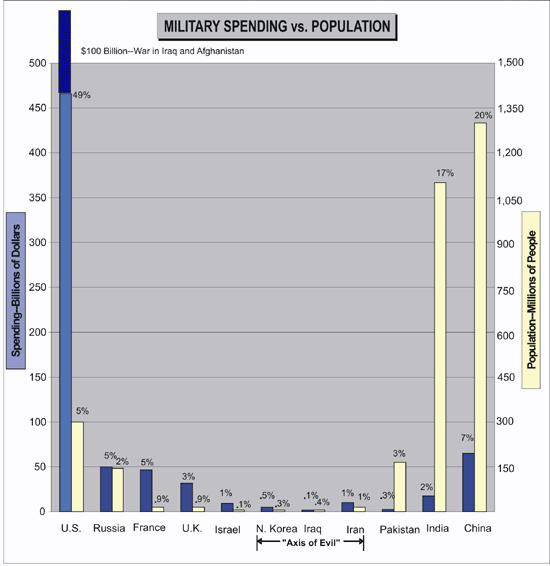
Percentages on bar graphs represent each nation’s percentage of global spending and population.
Sources: www.GlobalSecurity.org, and www.Geohive.com
History shows that fortunes are made and lost, world powers come and go, vast empires rise and fall, and civilizations flourish—only to disappear. Time is a powerful equalizer. The Scottish jurist and historian, Sir Alex Fraser Tytler, said in 1810, “The average age of the world’s great civilizations has been 200 years. These nations have progressed through this sequence: from bondage to spiritual faith; from spiritual faith to great courage; from courage to liberty; from liberty to abundance; from abundance to selfishness; from selfishness to complacency; from complacency to apathy; from apathy to dependency; from dependency back again to bondage.”
Would a nation that is currently a world power participate in a global democracy? It certainly ought to, if it accepts that world law supported by member nations is the best way to eliminate WMDs, genocide and terrorism. Wouldn’t such a global democracy usurp that nation’s dominance? Yes, somewhat—at least with respect to WMDs, terrorism, and genocide issues. World powers must realize by now that having power alone is neither sufficient nor effective. Protecting national interests requires a functioning international legal framework. Sovereign nations must become part of something larger than themselves to become stronger, and that takes humility.
Being mindful of that, current world powers would be wise to establish a magnanimous foreign policy (at least out of an enlightened self-interest), and participate in the establishment of an enforceable global law while they are still a world power, and have the influence to shape the future of a world in which they may one day not be powerful.
No nation stays in power forever. The sovereign borders on the maps of Europe on the following pages are like frames in a movie film strip.
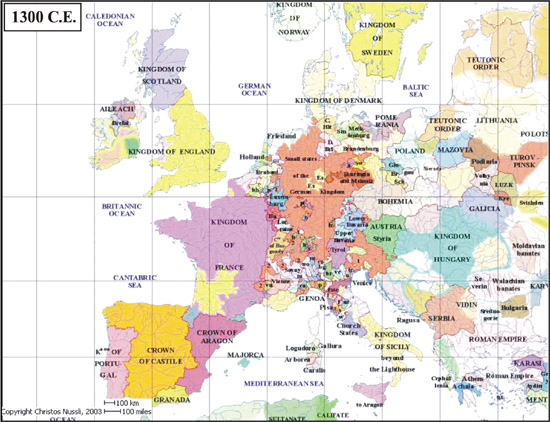
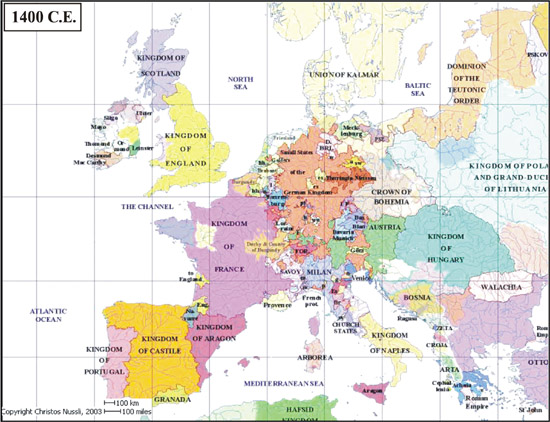
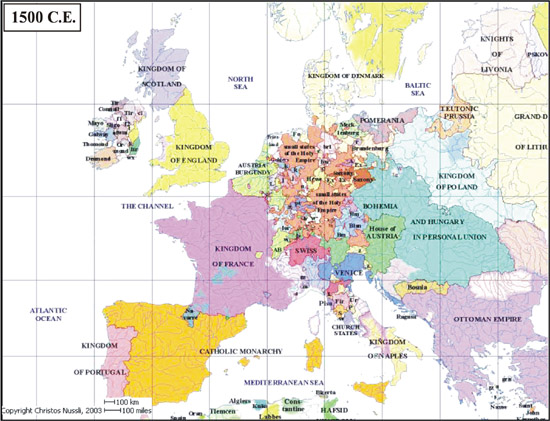
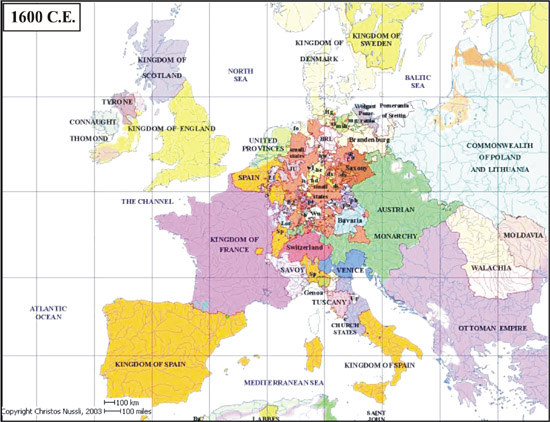
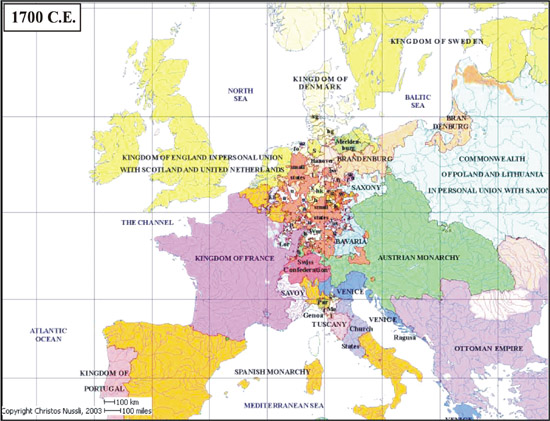
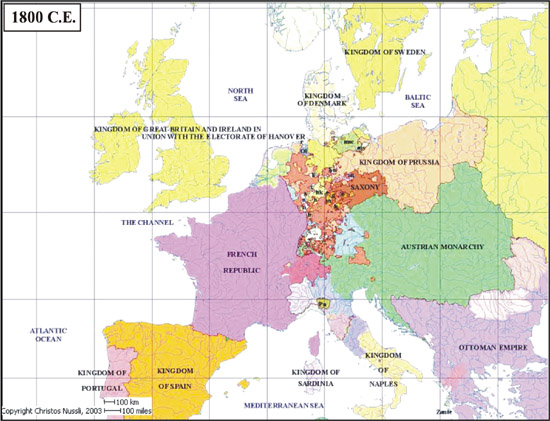
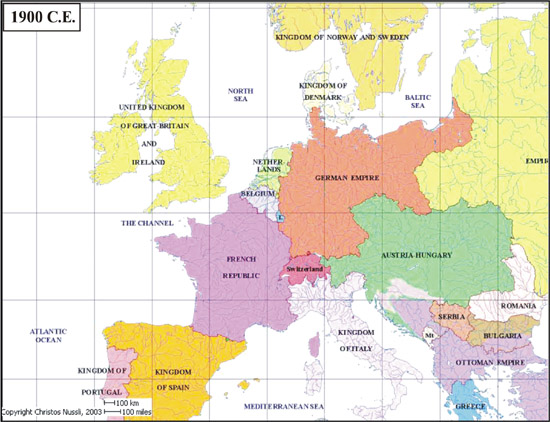
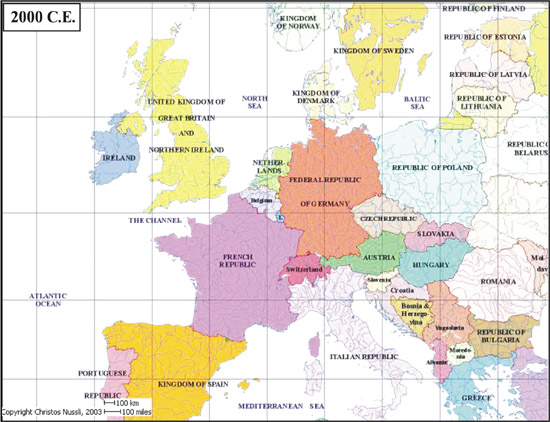
© 2003 Christos Nüssli, www.euratlas.com